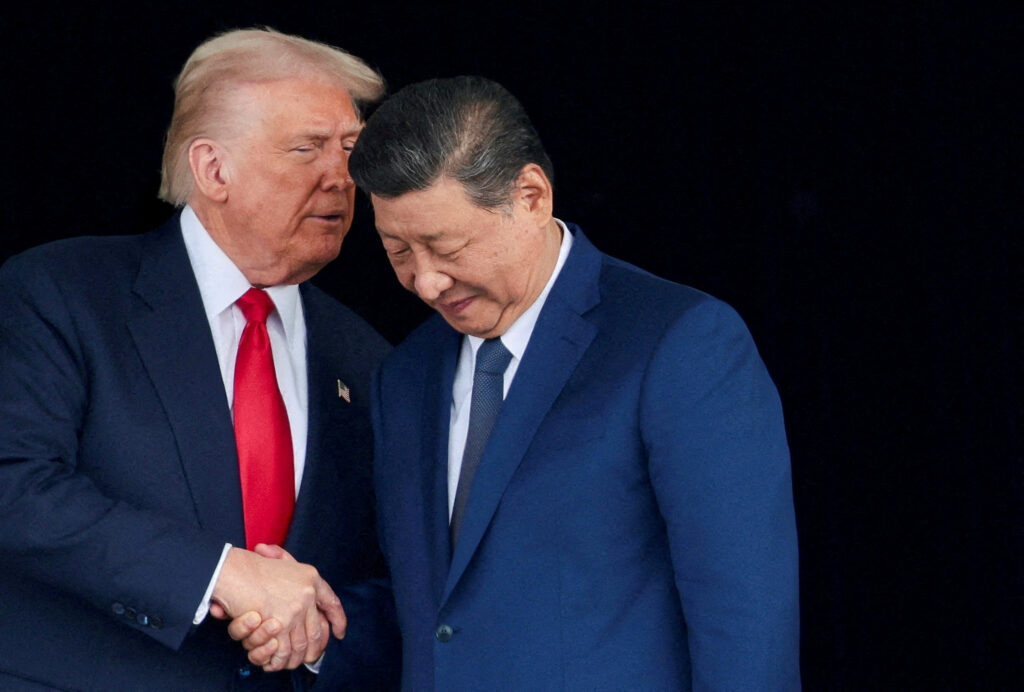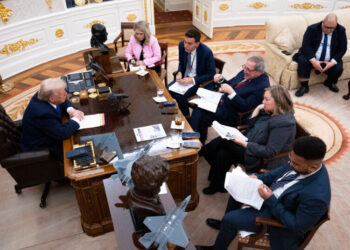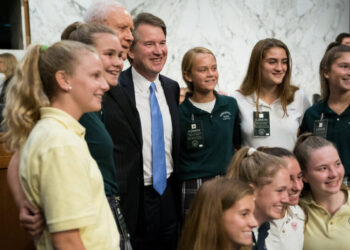Chinese leader Xi Jinping urged President Donald Trump to help protect the post-World War II order — a tacit reference to supporting Beijing’s claims over Taiwan — in a phone call that Chinese analysts have claimed as a win in Beijing’s tense standoff with Japan.
Xi told Trump that the “return” of self-governing Taiwan to China is an important part of the allied victory, according to the official Chinese readout of Monday’s call.
“China and the U.S. once fought shoulder to shoulder against fascism and militarism and should work all the more closely together to safeguard the fruits of victory in World War II at present,” he said, according to the readout.
Trump described the “very good” call as focusing on the war in Ukraine, curbing the flow of illicit fentanyl precursors and Chinese purchases of American soybeans. “Our relationship with China is extremely strong!” he wrote in a Truth Social post that did not mention Taiwan or Japan.
But Chinese state-affiliated political commentators were quick to declare the call a tactical win for China in its escalating spat with Tokyo.
Sanae Takaichi, Japan’s new prime minister, suggested this month that Japan could intervene militarily if China ended up in a direct confrontation with the U.S. as part of a future invasion of Taiwan, the self-governing island that the Chinese Communist Party claims as its territory.
Beijing has responded with an escalating pressure campaign of verbal attacks, military threats and economic coercion.
The call added to that effort by drawing Washington closer to Beijing, Chinese analysts said.
“Tokyo’s room for maneuver has been constrained,” wrote Fred Gao, a journalist at state broadcaster CGTN and author of the Inside China newsletter. “Takaichi’s unilateral declarations on Taiwan now appear not just premature but strategically isolated — she has moved beyond where even Washington is willing to go.”
Chinese analysts pointed to the lack of a standard phrase — “at the request of the U.S.” — to indicate that Xi initiated the call.
The Chinese readout reported Trump saying he “understands the importance of the Taiwan question for China” and noting the importance of Chinese efforts to securing an allied victory in World War II.
Trump’s call with Takaichi later that same day has fueled speculation in China that the two calls were connected. Takaichi told reporters that Trump requested the call and used it to explain the current status of U.S.-China relations — including his recent call with Xi — but declined to provide further details.
The U.S.-Japan security alliance commits the U.S. to defend Japan in a case of an attack, so the U.S. could become embroiled in any conflict.
Both countries have typically avoided commenting on whether U.S. involvement in a war over Taiwan would trigger these mutual obligations, in line with a U.S. policy of “strategic ambiguity” about how and when it might intervene to respond to a Chinese attack on Taiwan.
It’s unlikely that Xi directly asked Trump to intervene in the spat, said Wang Guangtao, deputy director of the Center for Japanese Studies at Fudan University in Shanghai. He likely wanted to send a signal to the U.S. and its allies over Taiwan and to urge Trump to make a clear response, Wang said.
“Once Trump interpreted China’s position, he then held a call with Takaichi,” Wang said.
Xi has placed the Chinese Communist Party’s version of history front and center in his claims that Taiwan “must and will” accept Beijing’s rule.
This campaign has spanned grand military parades to celebrate victory over fascism, gory war epics about Japanese atrocities and dry academic arguments about the allied treaties that led to Japan’s surrender in 1945 — and why those documents supposedly support Beijing’s claims.
“The ultimate goal — or at least the outcome China hopes for — is that the United States comes to recognize the importance of these treaty principles,” said Wang. If Trump comes to understand the issue of Taiwan’s sovereignty from Beijing’s perspective, he said, then “that would be something very welcome” for the Chinese government.
Chinese officials have also repeatedly drawn parallels between Takaichi’s remarks and Japan’s attack on Pearl Harbor and its brutal invasion of China during WWII.
“China must resolutely respond,” Wang Yi, China’s foreign minister, said Sunday. “This is not only to safeguard China’s sovereignty and territorial integrity, but also to defend the postwar achievements won with blood and lives.”
Rudy Lu in Taipei and Chie Tanaka in Tokyo contributed to this report.
The post China sees Trump calls as a win in spat with Japan over Taiwan appeared first on Washington Post.




